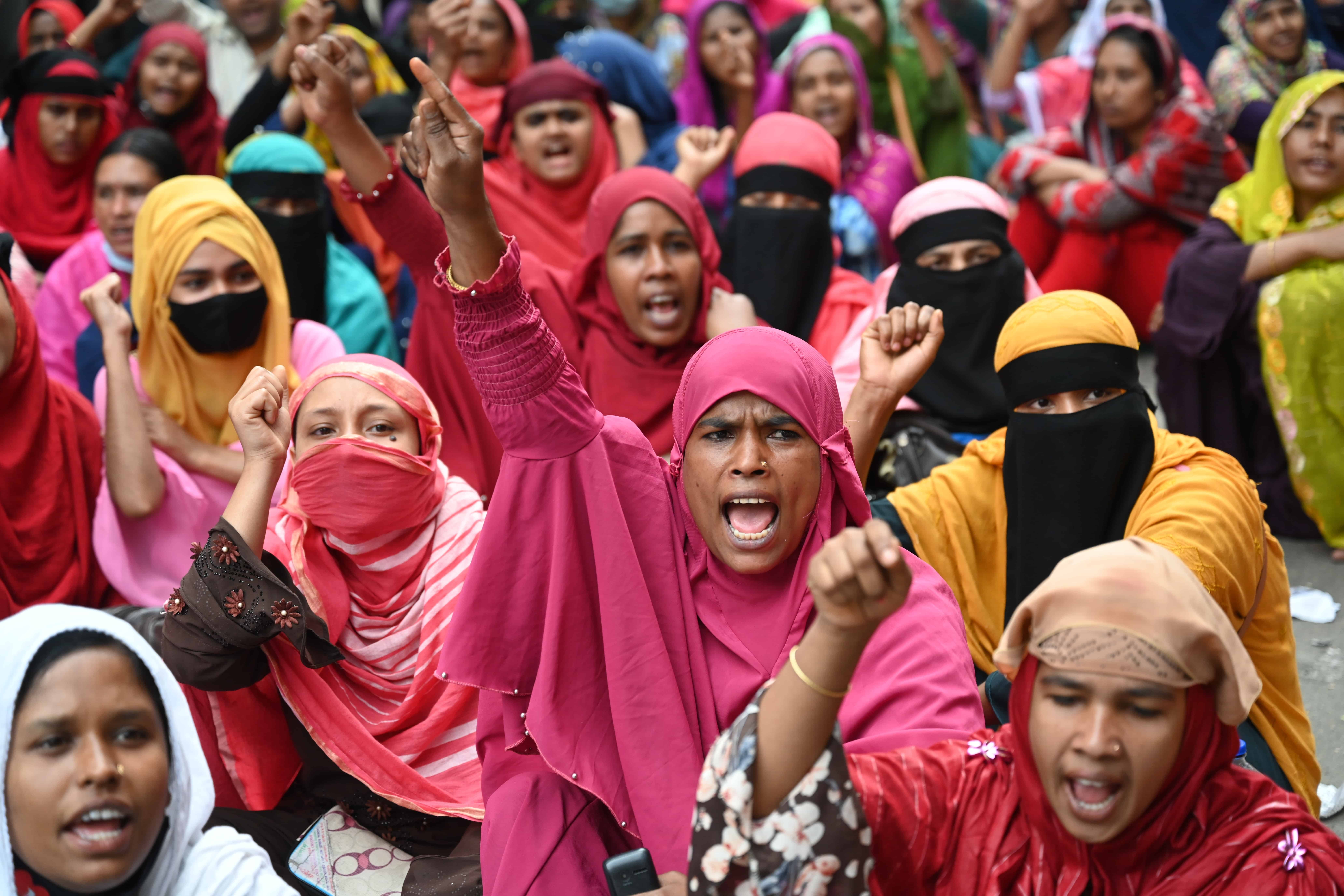Oxfam stands in solidarity with the Bangladeshi garment workers, activists, trade unions and worker representatives who advocate for increasing the minimum wage to Tk. 23,000 per month. We strongly urge all international fashion brands that source from Bangladesh to support trade unions’ demands for an increased minimum wage, particularly Canadian fashion brands like Joe Fresh, Lululemon and Roots.
We are deeply concerned about the violent attacks by police against peaceful worker protests in Bangladesh. The mounting violence is unfolding as garment workers rightfully demand fair negotiations to increase their minimum wage from Tk 8,000 to Tk 23,000, at this time of serious economic stress both nationally and globally. We mourn the loss of Rasel Howlader, a garment factory worker, who was shot dead by police earlier this week. Several labour organizers have been unjustly arrested and some union federation offices have been forced to shut down, while hundreds of garment workers have been injured.
This year’s minimum wage revision is unfolding in a challenging environment for workers and the labour rights movement in Bangladesh, with tensions rising due to the upcoming national election. The tragic murder of trade unionist Shahidul Islam in June serves as a stark reminder of the oppressive conditions under which these wage negotiations are taking place. During the last round of minimum wage negotiations in 2018, one worker lost their life, dozens were injured and thousands lost their jobs.
On October 22, 2023, the employer representatives submitted a proposal to the Minimum Wages Board to increase the minimum wage to only Tk. 10,400, less than half of what trade unions are calling for. Bangladesh trade unions, worker representatives and civil society organizations expressed their concern about this situation and have issued a public statement in response to the employer representatives’ proposal. The employers’ association, Bangladesh Garment Manufacturers and Exporters Association (BGMEA), issued a warning that its members would temporarily close factories if the unrest continues. Oxfam perceives BGMEA’s ‘no work no pay’ position as a pressure tactic to weaken support for an increase in the minimum wage.
Key Facts:
- The minimum wage for the women who make our clothes in Bangladesh has remained unchanged since 2019 at Tk. 8,000 per month (US $73). Meanwhile, the cost of living has significantly risen due to inflation, with food prices increasing by 21% to 50% between 2022 and 2023.
- The current minimum wage (Tk. 8,000) is only 35% of what workers should be paid to receive a living wage. A living wage, which should be earned within 48 hours/week, should at least cover nutritious food, housing, utilities, healthcare, childcare, education, clothing, transportation and other essential needs, including savings for unexpected events.
- Based on a thorough cost of living study conducted by the Bangladesh Institute for Labour Studies (BILS), any wage below Tk. 23,000 will not be enough to enable workers to support themselves and their dependents.
- The trade union demand closely aligns with the Global Living Wage Coalition.
- During the official visit of the UN Rapporteur on extreme poverty and human rights to Bangladesh in May, he addressed the issue of poverty wages and highlighted all workers have a right to remuneration, which provides them, at a minimum, fair wages and a decent living for themselves and their families.
Oxfam strongly urges fashion brands in Canada that are sourcing from Bangladesh to make a public statement supporting union demands to increase the minimum wage to Tk. 23,000 and calling on the government of Bangladesh to include all relevant stakeholders in minimum wage negotiations, ensuring the safety of all trade unionists, activists and garment workers.
